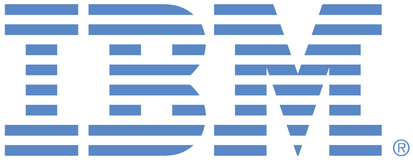
This portal is to open public enhancement requests against products and services offered by the IBM Data Platform organization. To view all of your ideas submitted to IBM, create and manage groups of Ideas, or create an idea explicitly set to be either visible by all (public) or visible only to you and IBM (private), use the IBM Unified Ideas Portal (https://ideas.ibm.com).
Shape the future of IBM!
We invite you to shape the future of IBM, including product roadmaps, by submitting ideas that matter to you the most. Here's how it works:
Search existing ideas
Start by searching and reviewing ideas and requests to enhance a product or service. Take a look at ideas others have posted, and add a comment, vote, or subscribe to updates on them if they matter to you. If you can't find what you are looking for,
Post your ideas
Post ideas and requests to enhance a product or service. Take a look at ideas others have posted and upvote them if they matter to you,
Post an idea
Upvote ideas that matter most to you
Get feedback from the IBM team to refine your idea
Specific links you will want to bookmark for future use
Welcome to the IBM Ideas Portal (https://www.ibm.com/ideas) - Use this site to find out additional information and details about the IBM Ideas process and statuses.
IBM Unified Ideas Portal (https://ideas.ibm.com) - Use this site to view all of your ideas, create new ideas for any IBM product, or search for ideas across all of IBM.
ideasibm@us.ibm.com - Use this email to suggest enhancements to the Ideas process or request help from IBM for submitting your Ideas.
IBM Employees should enter Ideas at https://ideas.ibm.com

Hi Team,
I have got a questioned asked by Adrian in our meeting - I'm providing more details here regarding same.
In Snowflake Connector - there is an option called "USE DATASTAGE PROPERTIES" Checkbox.
If we uncheck the box, write mode = "Load from file" is disabled. We have used this write mode extensively in all the flow. this particular type is very important to process that data faster and better performance, instead of simply insert.
So, with Load From File - creates the intermediate data files and push on to Snowflake Stages and loads the data - this load is faster as it runs on same Snowflake environment.
if we go with Insert or insert then update - it will try to load every record as single transaction and executes for very long time and performance impact.
Hope, these comments explain why we are using Load From File mode.
Thanks,
Krishna
Thank you for updating the idea Krishna. We've received the comment
I tried attaching the screenshot to the Reject things to be captured for Snowflake connector. Some how this comment box is not having attachment. I'm trying to put as much data as possible.
For Quick Reference - Oracle Connector with Reject Link --> under Reject --> there are list of Reject rows based on selected conditions. We are excepting those conditions to be available for all Write modes in Snowflake Stage.
Row not updated - update mode
Row not updated - Insert then update mode
Row not deleted - Delete mode
SQL error - Character Set Conversion
SQL error - Constraint Violation
SQL error - Data Truncation
SQL error - Data type Conversion
SQL error - Partitioning
SQL error - XML processing
SQL error - other
All the above errors need to be covered with "Load From File" Write mode as well. Please ask if any clarification is needed.
Hi ,
Adding additional details here - expanding the details of the expectations of reject link here
Snowflake Stage has different type of "Write Modes" - We are majorly using "Load from file" with landing the data as intermediate files on internal stage and later it will get processed using COPY command.
Second, majorly used option is "Insert then Update" with MERGE option as "Yes".
Third, used option is "insert or Insert then Update" without MERGE.
In all the cases, we would like to see an option to capture the rejected records. Kindly let us know, if you see if any of the above requirements are not able to fit in for rejection handling.
Happy to discuss over call, if needed.